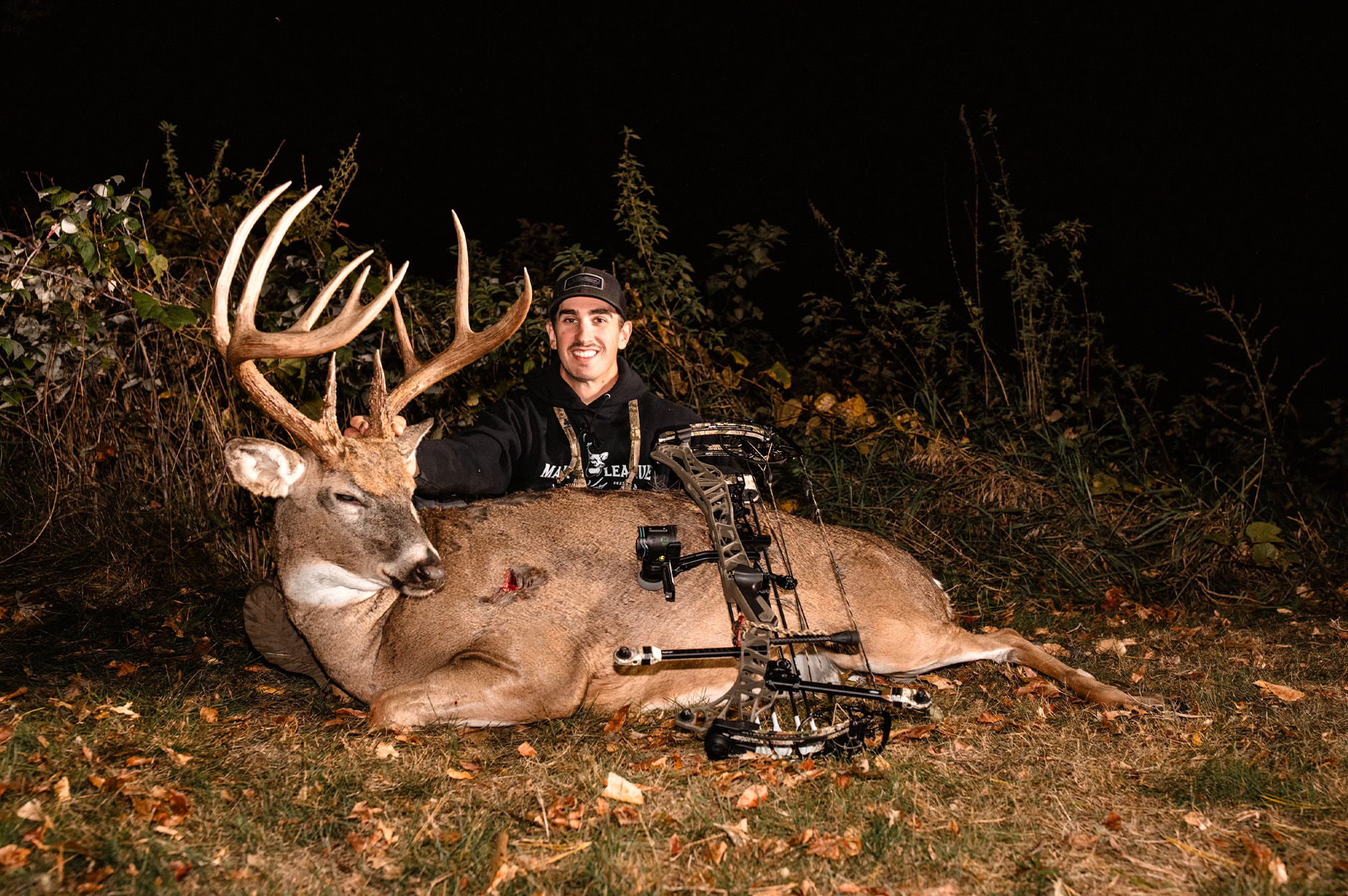Lucas Norby was bowhunting elk in Colorado in late September when he got a text from his wife, Paige. Her message was to let him know that a buck he’d been watching for three years was now moving consistently in the daylight. But he’d have to get home to Wisconsin soon if he wanted to hunt it, Paige insisted.
“Paige was going nuts because he was finally moving in daylight through an area where I could have a chance to take him,” Lucas tells Outdoor Life. “This buck was a roamer. He was so far-ranging that I nicknamed him ‘Cowboy.’ We’d get photos of him one to two miles apart. He just drifted all the time.”
Lucas explains that Paige had been monitoring a few cellular trail cams they’d placed on some family-owned land near Eau Claire. Lucas had put a couple cameras near his tree stand, which was situated along a travel corridor he believed the buck was using. But the only photos they’d gotten of the buck were all late in the afternoon.
Photo courtesy Lucas Norby
“He bedded at the top of a ridge and would only move in late afternoons from his bedding area along the edge of a CRP field and into soybeans to feed,” Lucas explains.
After he got back from Colorado, Lucas hunted his stand for the first time on Sept. 26. Just before dark that evening, he saw the buck 100 yards away as it moved from the ridge to the bean field. Three days later, on Sunday, he was back in the same stand, and he although he had the buck at 45 yards, he never got a shot opportunity.
“The next day was warm, so I didn’t hunt. But the following evening, a cool front was in the forecast, and I was back in the stand the afternoon of Oct. 1,” Lucas explains.
Read Next: How to Beat the Dreaded October Lull This Deer Season
Around 6 p.m. that evening, he watched Cowboy come down off his bedding area on the ridge and head for the ag fields. The buck fed for a bit at 100 yards, then entered the CRP field and walked toward Lucas.
“When he was at 24 yards I drew, anchored, and released my arrow,” he says. “He was quartering away, and the arrow went in behind his shoulder and exited behind the opposite shoulder.”
The deer took off in high gear as Lucas watched it dash across the bean field and disappear into a tangle of leafy cover. Lucas eventually got down from his stand and found a blood trail. After following it a while, he decided to stop and back out and return the next morning. By then, Lucas had recruited Paige, along with his father, John, and their neighbor to help find the buck. He also reached out to the Deer Society and found someone with a blood-tracking dog who could help them recover the deer.

Photo courtesy Lucas Norby
“That sure made things easier. We took the dog to the last blood I had found the previous night, and the dog went right to the buck. He’d only traveled about another 100 yards before dying.”
Lucas says the buck weighed 253 pounds and was 6.5 years old, according to his taxidermist. Cowboy’s rack had 14 scoreable points, and they gave it a green score of 186 7/8 inches.
“We’ll put him in our house,” Lucas says. “But we have a lot of mounted animals there, and many of them are Paige’s. So where exactly Cowboy will hang is yet to be determined.”
Read the full article here




